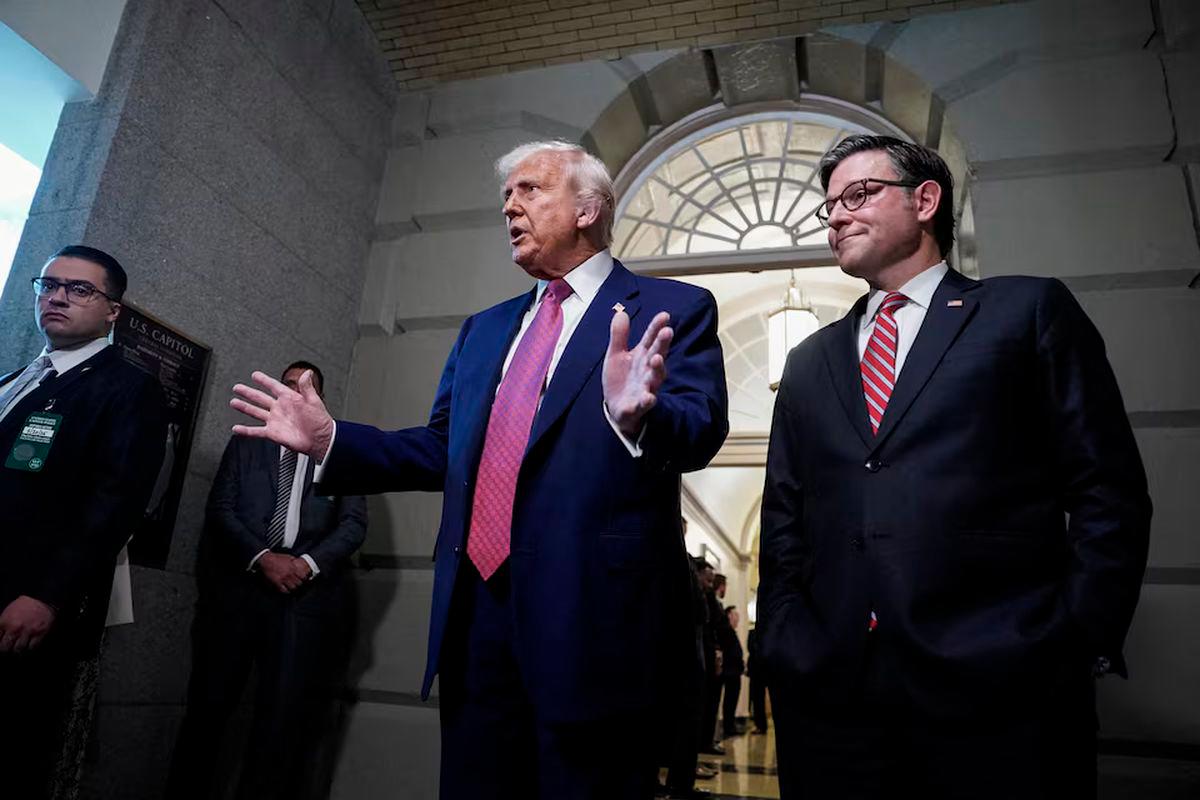WASHINGTON: Republicans in the U.S. House of Representatives on Wednesday were trying to close in on a deal to pass President Donald Trump’stax cut and spending bill, with overnight talks focused on spending cuts and breaks for people in high-tax states.
The gate-keeping House Rules Committee began debate at around 1 a.m. EDT (0500 GMT), aiming to pass by as early as Wednesday a measure that is estimated to add trillions to the nation’s $36.2 trillion in debt. Success in the House would set the stage for what is expected to be weeks of debate in the Senate.
Republicans, who control both chambers of Congress, are waiting for their leadership’s overall amendment package to the bill that is meant to coalesce the party’s sparring factions. Democrats have also proposed more than 500 amendments.
If the legislation is passed by Congress, it would reduce some health and food benefits for low-income Americans, cancel green-energy programs and provide tens of billions of dollars for immigration enforcement.
Trump huddled with Republican lawmakers on Tuesday to try to persuade holdouts to get in line on what he calls a “big, beautiful bill,“ but the visit failed to sway the wide array of lawmakers who object to specific features.
House Speaker Mike Johnson has little room for error, as his party holds a narrow 220-212 majority and a handful of “no” votes from his side could scuttle the bill, which Democrats say favors the wealthy and cuts needed social programs.
The bill would extend the 2017 tax cuts that were Trump’s signature first-term legislative achievement, and also add tax breaks on income from tips and overtime pay that were part of his populist push on the campaign trail last year. Nonpartisan analysts say it could add $2 trillion to $5 trillion to the federal debt.
“Failure is not an option in getting this done,“ Representative Jason Smith of Missouri, the Republican chairman of the House tax-writing committee, said during the debate on Wednesday that “Americans voted for an America where workers and families will thrive again, Main Street and rural towns will grow again, and America wins again.”
Democrats said the bill disproportionately benefits the wealthy and cuts programs needed by working families.
“We’re going to ask Americans to finance tax cuts for billionaires on the national debt - on the credit card,“ said Representative Gwen Moore, a Democrat on the tax-writing committee. “Deficits aside, this bill is ugly because it is ultimately a betrayal of the contract that we have made with the American people, and especially to our babies and to our working people.”
DEBT CEILING
The Medicaid health program for low-income households has proven to be a major sticking point, with fiscal hawks pushing for cuts to partly offset the cost of the bill’s tax components, which moderate Republicans say would hurt voters whose support they will need in the 2026 midterm congressional elections.
The bill also faces objections from a handful of centrist Republican lawmakers from high-tax states, including New York and California, who are pushing to expand a proposed $30,000 cap on deductions for state and local taxes.
Trump is pushing for unanimous support from Republicans, and said on Tuesday that the holdouts could be drummed out of the party.
The bill would raise the nation’s debt ceiling by $4 trillion. Lawmakers must act to address that limit by this summer or risk triggering a devastating default.
Credit-rating firm Moody’s last week stripped the U.S. government of its top-tier credit rating, citing the nation’s growing debt.
If the package passes the House, it would then head to the Senate, where Republicans hold a 53-47 majority. That would not be expected until next month, as members of Congress are preparing to leave Washington next week for a week-long break.









